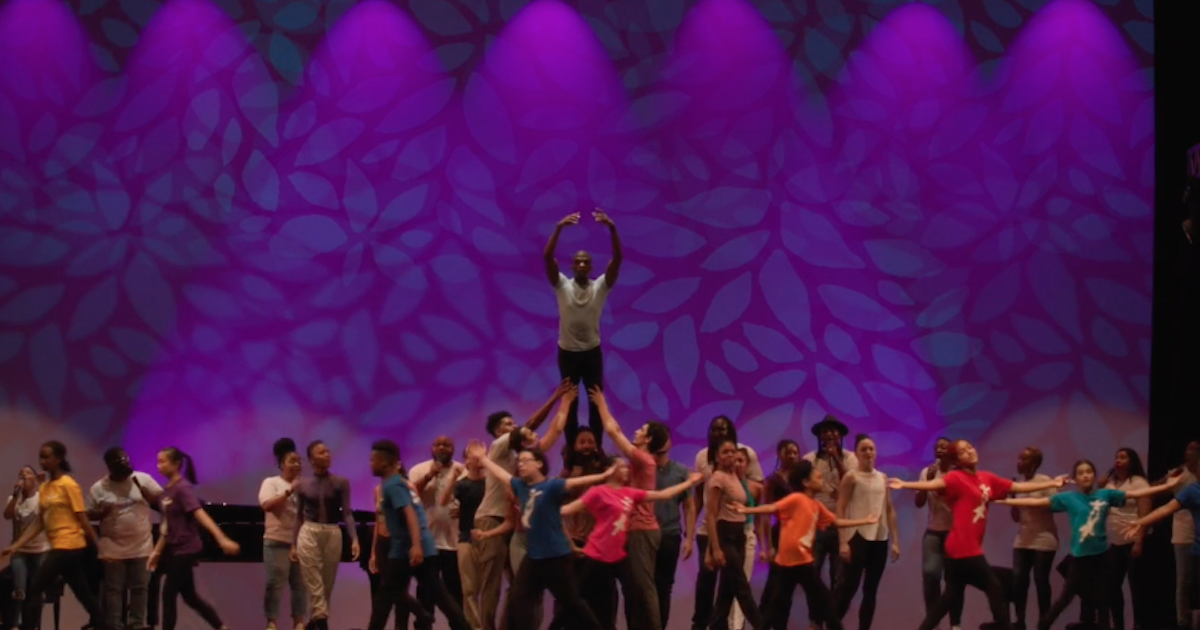A touching and emotional tribute to Chadwick Boseman took center stage this week in New York City. Ten months after the Black Panther star lost his battle with colon cancer, his brother Kevin closed out the annual Dance Against Cancer fundraiser at Lincoln Center with a performance dedicated to the Oscar-nominated actor.
Read MoreRELATED: Grieving Anderson Cooper Breaks Down After Show Writer Loses Battle With Appendix Cancer
“What I realized was worrying about things like my career or what is the next chapter of my life are not important,” Kevin said about the shift he experienced after being diagnosed with the disease. “The real value is in our relationships. Also, life is so short. If there is something you really want to do, there’s no time to waste.”
That philosophy was a difficult one to maintain last year though, as the COVID pandemic kept many in lockdown. But even that had a silver lining for Kevin and the Boseman family.
“I was blessed last year to spend the last five months of my brother’s life with him,” he explained. “But I’ve also been away from my friends and my arts community. It’s been a struggle to come together and create art.”
That is why he was so excited to take part in the event, and return to New York 30 years after he first moved to the Big Apple. It was that move, and his subsequent successes dancing with Alvin Ailey American Dance Theater and Martha Graham Dance Company, then traveling the country on Broadway tours of The Lion King and The Color Purple, which inspired his brother to chase his dream.
RELATED: 'Anne With An E' Star Miranda McKeon, 19, Reveals Breast Cancer Diagnosis
Chadwick followed his brother to New York, sleeping on the couch in Kevin’s Brooklyn apartment while he studied acting and wrote scripts. "He always did his best," Kevin told The New York Times in an interview last year. "His best was incredible."
Then, in 2016, Chadwick learned that he had stage III colon cancer, but kept the diagnosis private from everyone but his family and a few close friends. The disease progressed to stage IV by 2020, and on August 28 he passed away at his home surrounded by his family.
In addition to Chadwick, the “This is Me: A Tribute to Our Heroes” finale at the event this week also honored medical workers and first responders.
Dance Against Cancer was founded in 2010 by Erin Fogarty and Daniel Ulbricht. The two dancers both had parents who battled cancer, and decided to do what they could to raise money for the American Cancer Society. In the decade since that first event, the two have helped to raise over $2 million.
Black Americans Need to Prioritize Cancer Screenings
Getting Screened for Colon Cancer
It is important to get screened for colon cancer even if you have no family history. The American Cancer Society recommends that people at average risk of colorectal cancer start regular screening at age 45.
Symptoms of colon cancer, according to the American Cancer Society, include:
- A change in bowel habits, such as diarrhea, constipation, or narrowing of the stool, that lasts for more than a few days
- A feeling that you need to have a bowel movement that is not relieved by having one
- Rectal bleeding with bright red blood
- Blood in the stool, which might make it look dark brown or black
- Cramping or abdominal pain
- Weakness and fatigue
- Losing weight without trying
Dr. Heather Yeo, a colorectal surgeon at Weill-Cornell Medical Center, discusses the top two myths associated with colon cancer and getting checked, and sets the facts straight with SurvivorNet:
Myth #1: Colonoscopies are the only way to detect colon cancer.
The verdict: Not true. Though colonoscopies are the best way, there are a lot of other methods like fecal occult blood tests (which look at a sample of your stool) and fecal immunochemical tests (FIT). "The [tests] have different roles and you should talk to a medical provider about what's best for you, but there are a lot of options," Dr. Yeo says.
Myth #2: Only people with a family history can get colon cancer.
The verdict: Not true. "In fact, the majority of people who get colon cancer have no family history," Dr. Yeo says. "The reason I do the specialty is because if we screen patients early, cancers can be prevented. We can have really good survival outcomes and so I tell that to a lot of my patients. It's important to have a positive outlook for that."
Coping with Grief
After the loss of a loved one to cancer, or another cause, it’s imperative that you allow yourself time to grieve. People process grief in different ways, and everyone moves at their own speed as well. Be gentle with yourself and take the time you need.
For Camila Legaspi, who lost her mom to breast cancer when she was only in high school, she found therapy to be a critical component of her grieving and subsequent healing process. In an earlier interview, Legaspi says, “Therapy saved my life. I was dealing with some really intense anxiety and depression at that point. It just changed my life, because I was so drained by all the negativity that was going on.”
“Going to a therapist helped me realize that there was still so much out there for me, that I still had my family, that I still had my siblings,” she says. “The reality is, is when you lose someone, it’s really, really, really hard. And it’s totally OK to talk to someone. And I’m so happy that I talked to my therapist. Keep your chin up.”
"Be Patient With Your Emotions" A Social Worker's Insights Into Handling a Cancer Diagnosis
Learn more about SurvivorNet's rigorous medical review process.


